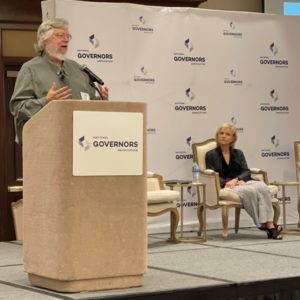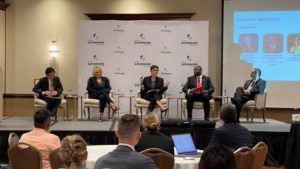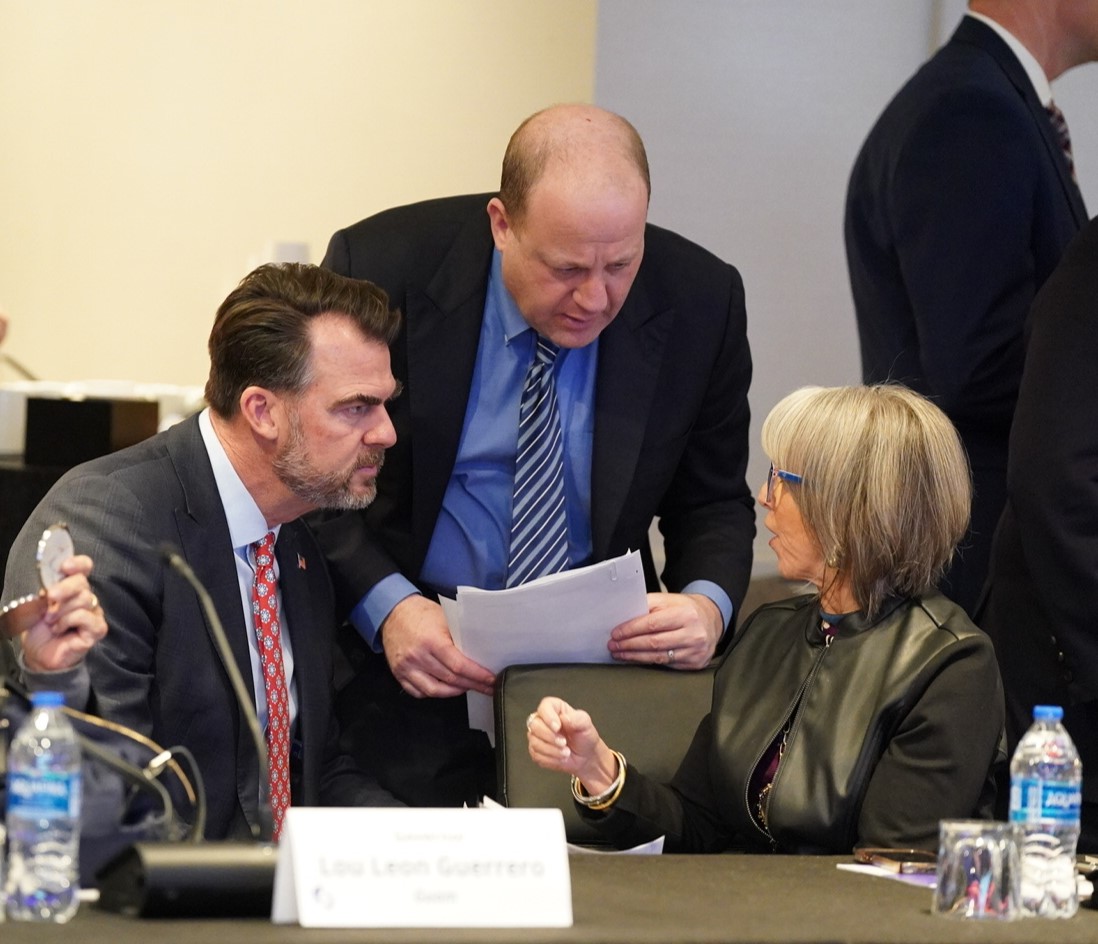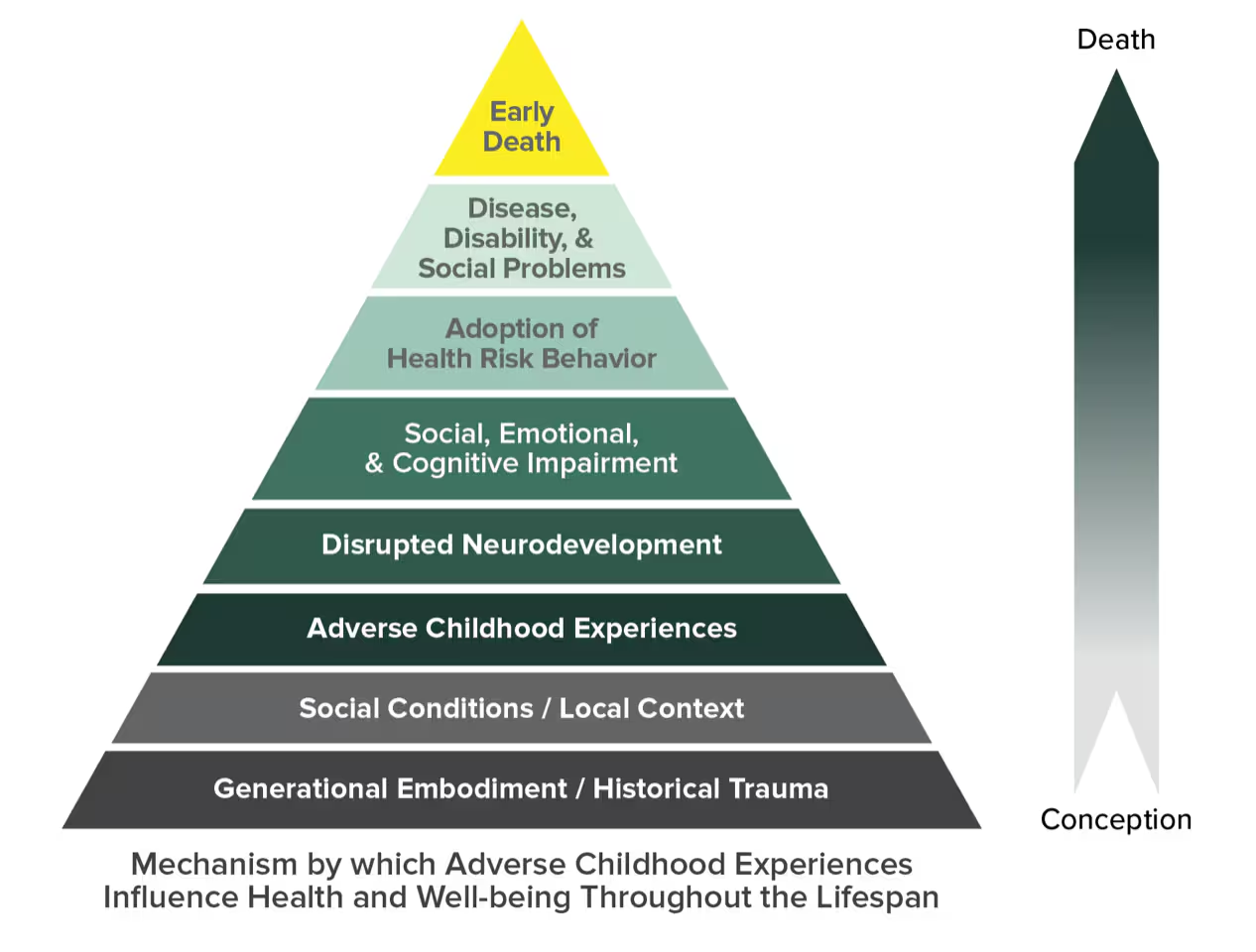Governors’ advisors met in Greensboro, North Carolina to discuss current challenges and state solutions in K-12 education policy.
By Seth Gerson & Catherine Van Ness
The National Governors Association (NGA) recently hosted a Governors’ Education Policy Advisors Institute from September 15-16 in Greensboro, North Carolina. The Institute convened 27 Governors’ policy advisors and state officials. The convening featured speakers and experts focused on discussion topics ranging from K-12 academic recovery to student and staff well-being to educator recruitment and retention.

The K-12 education portion of the Institute opened with a session focused on academic recovery resulting from instructional loss and disrupted instruction during the pandemic. Former North Carolina Governor Bev Perdue, who currently serves as Chair of the Executive Committee of the National Assessment Governing Board, which oversees the administration of the National Assessment of Educational Progress (NAEP), also called “The Nation’s Report Card,” provided opening framing remarks for the session. The Governor provided an overview of the recent release of the NAEP long-term trend assessment results and urged Governors’ offices to use NAEP data to drive state conversations on ways to address amplified student learning gaps. Dr. Bob Balfanz, Director of the Everyone Graduates Center, provided an overview of two national initiatives that he is leading to address academic recovery and student re-engagement: the National Partnership for Student Success and the GRAD Partnership.
After hearing opening remarks from former Governor Perdue and Dr. Balfanz, attendees broke into small roundtable discussions on specific academic recovery strategies. One of the tables, facilitated by Dr. Balfanz, discussed high-quality intensive tutoring and re-engaging students. Another group discussed how to expand summer learning and enrichment opportunities with Kathleen Airhart, Summer Learning Programs Advisor at the Council of Chief State School Officers (CCSSO), and Allison Crean Davis and Jill Lammert, Co-Directors of the National Comprehensive Center. The final small group discussion focused on data-informed decision-making and included LaTanya Pattillo, Director of Policy and Advocacy at NWEA, and Melody Schopp and Nadja Young, Directors at SAS Institute. These facilitated small group discussions allowed attendees to dive into a few specific strategies to address students’ academic and holistic needs as they continue to recover from the impacts of the pandemic.
The final session of the first day’s programming focused on strategies to support student and school staff well-being. Ross Wiener, Vice President and Executive Director of the Education and Society Program at The Aspen Institute, opened the session by enumerating strategies that can be led by Governors in their states, including a structure such as a children’s cabinet to facilitate cross-agency collaboration. Windy Lopez-Aflitto, Vice President at Learning Heroes, shared research on parent and educator opinions of their children’s and students’ mental health and well-being and the importance of school-family engagement. A panel of Governors’ education advisors from four states also shared some ways that Governors across the country have fostered partnerships, demonstrated leadership and secured funding for initiatives that support student and school staff wellness.

During the second day of the Institute, a local educator and student opened up the meeting with reflections on what education means to them, sharing their hopes for the future of schooling. After the opening discussion regarding who education policy impacts in schools across the country, attention turned to a session on the educator workforce. Panelists included Dr. Anthony Graham, Provost and Vice Chancellor for Academic Affairs at Winston-Salem State University and Chair of the North Carolina DRIVE Task Force; Tara Kini, Director of State Policy at the Learning Policy Institute; Dr. Margie Vandeven, Commissioner of Missouri’s Department of Elementary and Secondary Education; and Albert Wat, Senior Policy Director at the Alliance for Early Success. The panel discussion touched on strategies to improve both the recruitment and the retention of educators across the early childhood and K-12 continuum. Initiatives discussed included diversifying the educator workforce, expanding high-quality Grow Your Own and residency programs, improving compensation, and providing increased teacher and school leadership pathways and opportunities.
The Governors’ Education Policy Advisors Institute provided a valuable space for Governors’ education policy advisors to connect with each other, national and state experts, and partners across the education field.
NGA’s Center for Best Practices will continue to support Governors as they work to address student and staff needs in their states. Please visit NGA’s K-12 Education page for ongoing updates.













